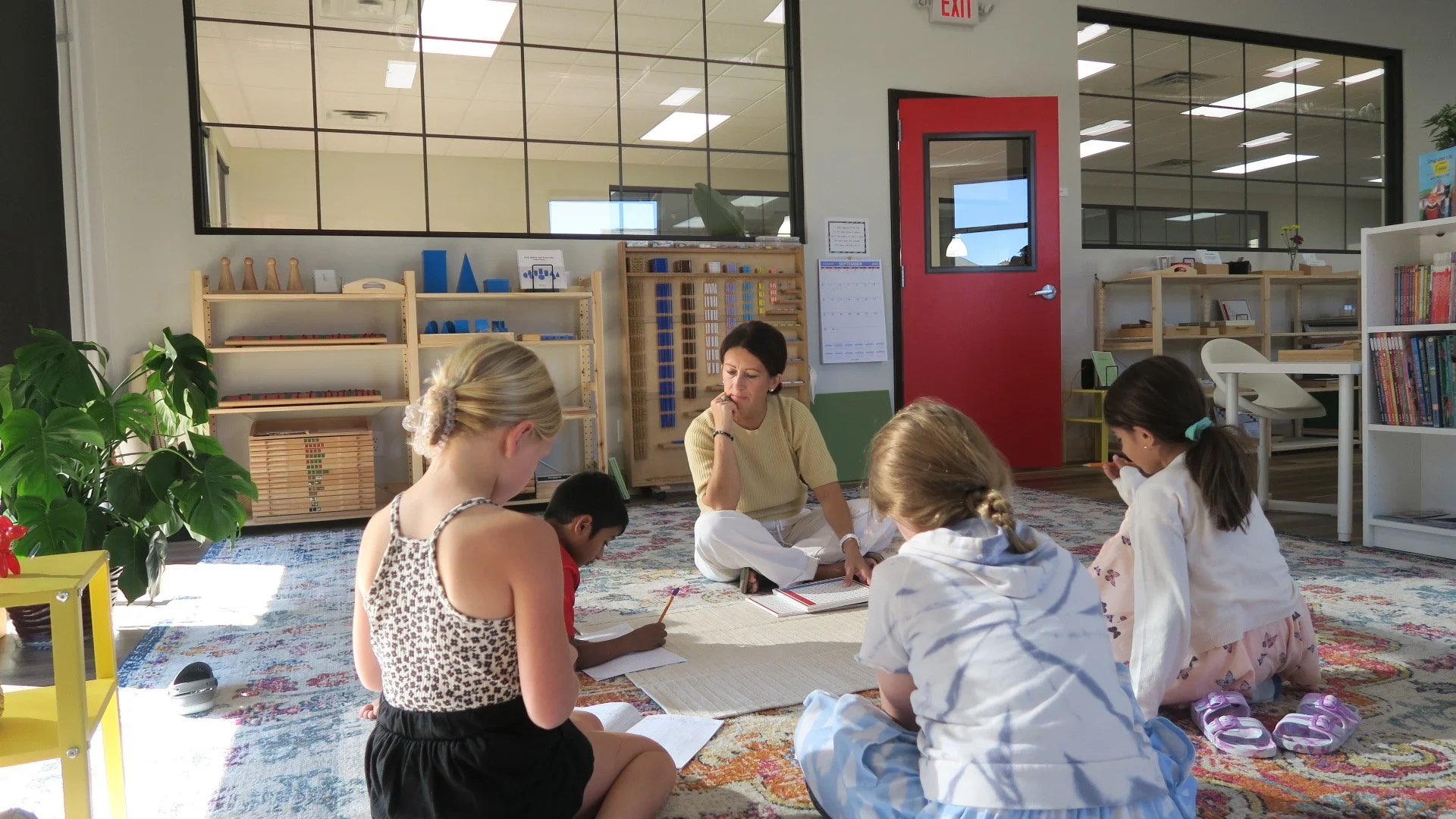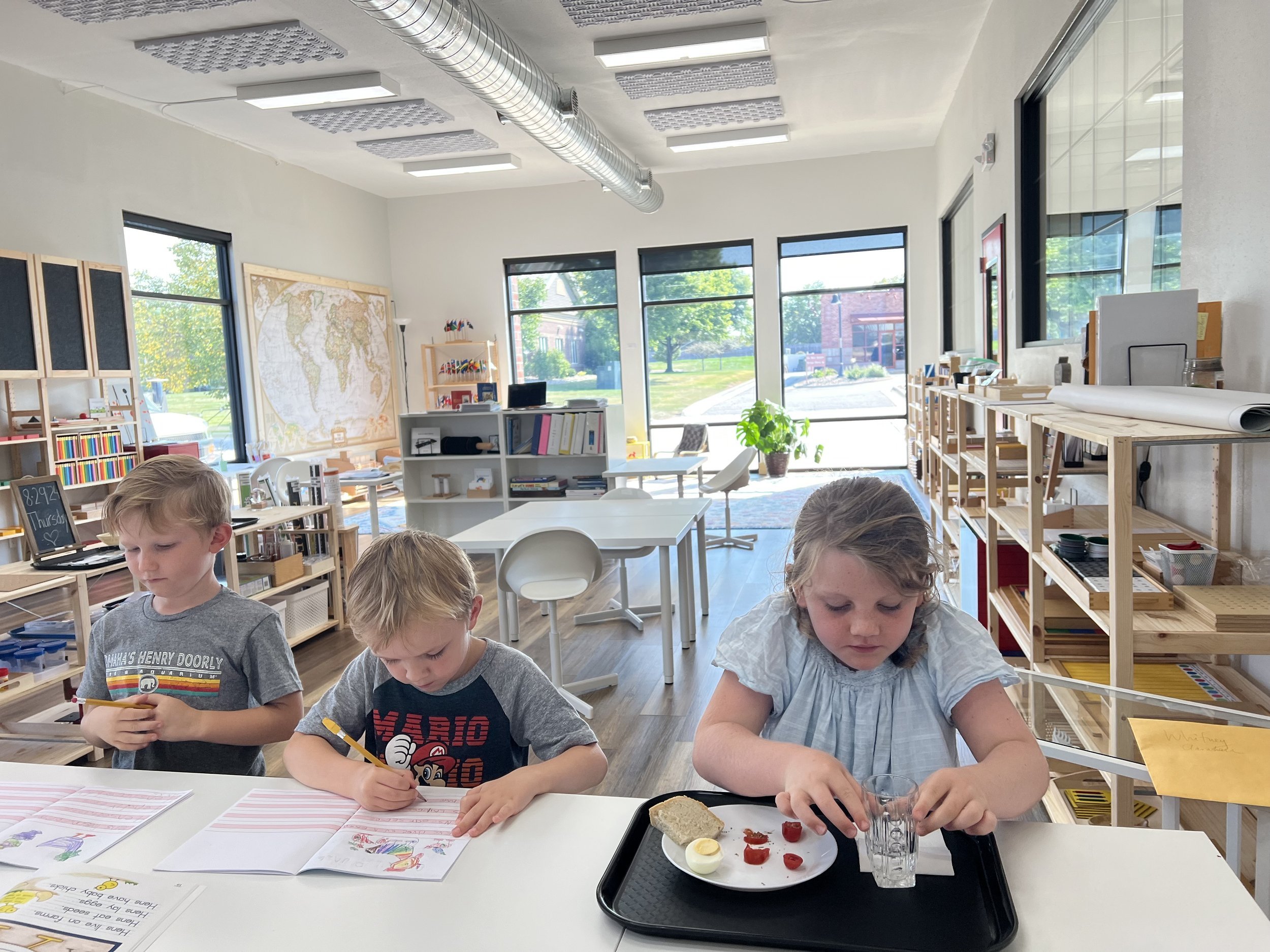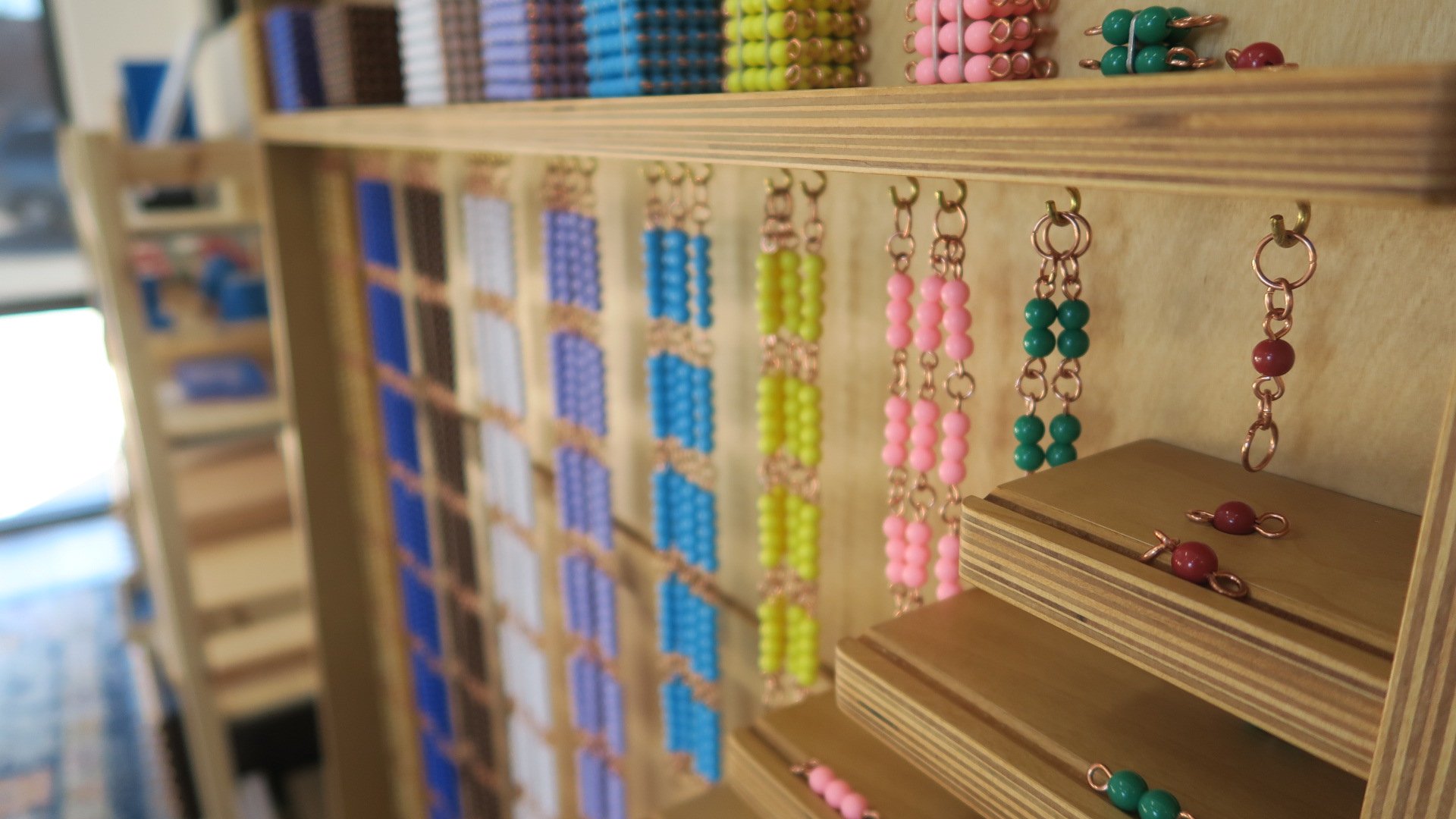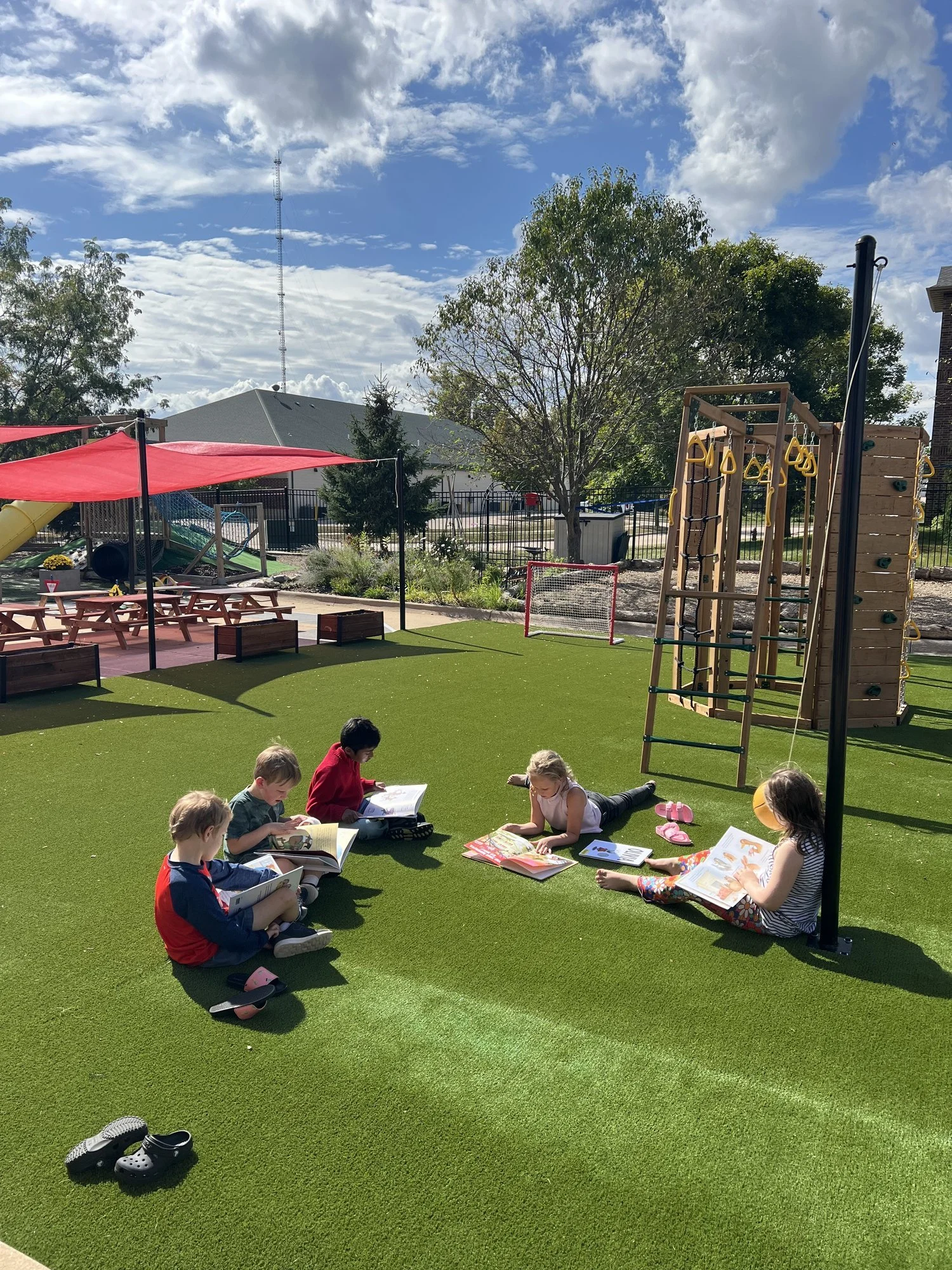Elementary I Program (Grades 1-3)
We are incredibly excited to announce our newest program, Montessori Elementary I (E1) for grades one through three. This is a three year program that children will begin upon completing a Montessori Casa program and work through until they are nine years of age.
Enrollment Requirements
To enroll in the Lower Elementary Program your child must:
- Be at least 6 years of age on or before September 15 (unless graduating early from MSM’s Casa program.)
- Have successfully completed three years in a Montessori Casa/primary program.
Lower elementary follows regular MSM hours, running Monday through Friday from 8:30 AM to 3:15 PM. Additionally, there is extra before school and after school care available.
“This [childhood] is the time of great powers and deep mysteries: the human being develops like a seed hidden in the earth that germinates and grows to become a spike of wheat. ”
While the Montessori method is most commonly associated with the early childhood stage, Maria Montessori scientifically developed methods of education for the human throughout his development. She identified four planes of development (below), each with its own unique purpose and needs.
Lower elementary covers the beginning of the Childhood plane when the child is most eager to learn. This is a period of intense learning and joyous discovery. Our carefully prepared environment is designed to support that hunger for knowledge with an array of state-of-the art materials and limitless opportunity.
“Knowledge can be best given where there is eagerness to learn, so this is the period [6-12 years of age] when the seed of everything can be sown, the child’s mind being like a fertile field, ready to receive what will germinate into culture.
But if neglected during this period, or frustrated in its vital needs, the mind of the child becomes artificially dulled, henceforth to resist imparted knowledge.
Interest will no longer be there if the seed be sown too late, but at six years of age all items of culture are received enthusiastically, and later these seeds will expand and grow.”
The Montessori Approach
Each morning, after some fresh air on the playground, we come inside and the children attend to their assigned weekly chores (e.g. watering plants, setting up snack, dusting, etc) before completing their daily journal entry followed by our math lesson for the day. Afterward, they have time to work on their math assignment before our language lessons and assignments. So on and so forth through the subjects.
Each child falls into a rhythm regarding how he has determined to balance his own assignments and the work that he is responsible for completing. These are great skills that children learn in their elementary years–how to prioritize work, self-manage, and create timelines for themselves. These are skills that many students in traditional environments never have the chance to practice until university. Often, at that point, students struggle to manage their new academic freedom having not had any practice in self-motivation and determination.
At the end of the month, every student will bring home all their workbooks from the classroom for every subject to show their parents their progress and the topics on which they have been working. You are encouraged to look through these with your child and observe signs of progress and growth together.
Outside of the Montessori materials which are inherently self-testing/correcting, every couple of weeks the lead teacher will be administering informal tests to determine if there are any gaps in the child's learning areas on which we need to focus on improving or reviewing. This is a holistic way to confirm a student’s learning and progress without formal tests that may cause undue stress or foster a “learn for the test” attitude.
As Heard Around our Classroom:
(From our students’ lips to you…)
“This is the best day!”
“It is so peaceful.”
“I am so lucky to be at this school.”
“We have so much work to do.”
“We are learning so much.”
“At this school we prepare our snacks, at my old school we had the experts do it. Here we are the experts.”
“___ would love to be here too.”





























